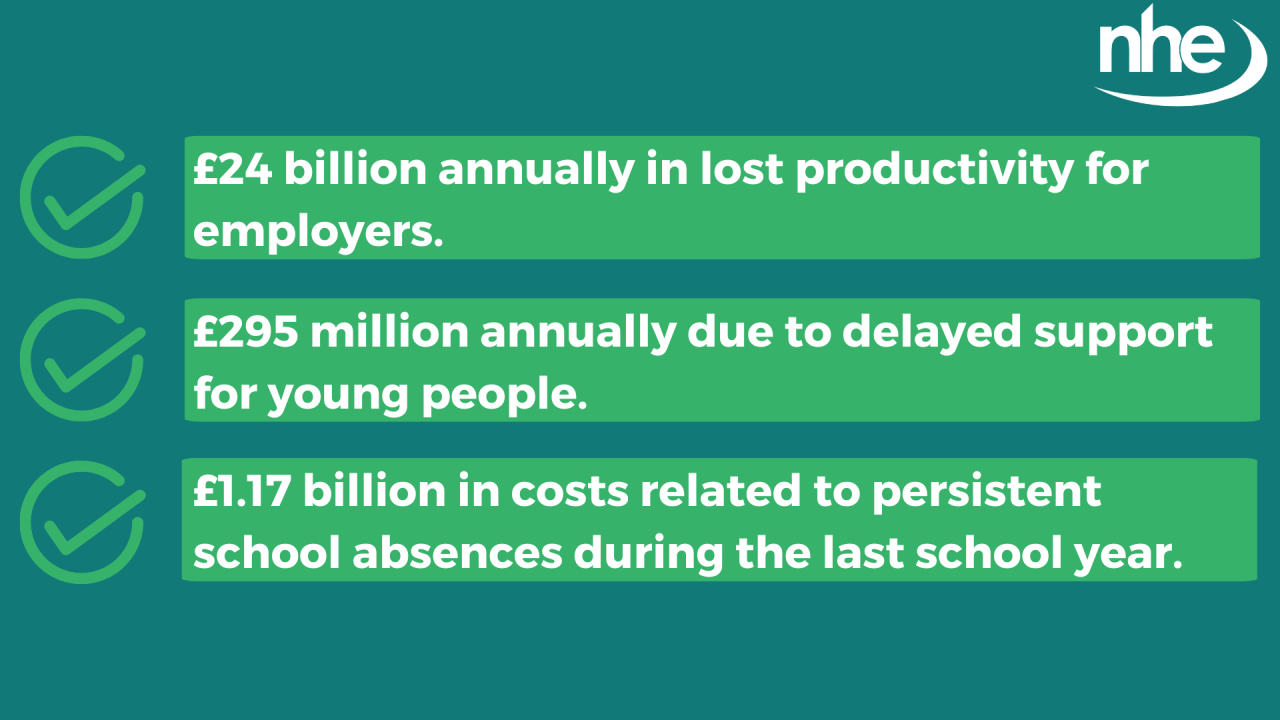The UK Government's mission to boost economic growth and productivity is under threat due to the escalating mental health crisis among children and young people, according to new research.
The long-term impact of childhood mental health problems is now estimated to cost the UK over £1 trillion in lifetime lost earnings.
The alarming findings were released today as part of a campaign launched by four leading organisations: Centre for Mental Health, Centre for Young Lives, the Children and Young People’s Mental Health Coalition, and YoungMinds, with the support of the Prudence Trust. The coalition is urging the Government to prioritise urgent reform and investment in children’s mental health services in the forthcoming Spending Review and 10 Year NHS Plan.
The research highlights the significant financial burdens caused by poor mental health, including:
- £24 billion annually in lost productivity for employers.
- £295 million annually due to delayed support for young people.
- £1.17 billion in costs related to persistent school absences during the 2023/24 school year.

The campaign advocates for increased investment to ensure that 70% of diagnosable mental health needs are met by the end of this Parliament. The focus is on expanding community services like Mental Health Support Teams and open access hubs to provide early intervention and prevent the worsening of mental health problems.
The coalition is calling on Ministers to recognise the severity of the crisis and avoid dismissing it as exaggerated or a result of "over-medicalisation." They are also urging an independent review to investigate the causes of the crisis, including the impact of social media.
With one in five children and young people now experiencing common mental health issues such as anxiety or depression, the demand for mental health services has never been higher. However, around 60% of children with diagnosable conditions have no contact with NHS-funded services, highlighting the urgent need for increased funding and resources.
Chief Executive at the Centre for Mental Health, Andy Bell, commented:
“Mental health difficulties in children and young people cast a long shadow that can last a lifetime without the right support. Yet children and young people’s services are underfunded, and levels of distress are rising markedly, leaving many thousands of children facing unacceptably long waiting times for support.
“The risks and gaps are biggest for the most disadvantaged and marginalised groups of young people.
“The Government can and must act now to turn things around. By investing in children’s mental health services, the Government can make sure that the mental health of another generation of young people is not left to chance.”
Research by the Future Minds Campaign underscores the broader implications of the mental health crisis, affecting not only the economy but also children's education and social care systems. Key findings include:
- The long-term economic cost of mental health problems in childhood, now estimated at over £1 trillion.
- The significant impact on labour market participation, reducing tax receipts and increasing Government spending on benefits.
- Concerns among working parents, with 46% worried about their children's mental health.
Ahead of the Government’s Spending Review, the campaign is calling for:
- Increased investment to meet 70% of diagnosable mental health needs by the end of this Parliament.
- Full rollout of Mental Health Support Teams, with a commitment to adapt the model to meet broader needs.
- Establishment of open access mental health services for children and young people in every community.
- An independent review to investigate the causes of the mental health crisis.
- A comprehensive mental health workforce plan.
- Increased funding for local government to support prevention and early intervention.
The Future Minds Campaign emphasises that investing in children and young people's mental health will not only aid the Government’s health mission but also contribute to economic growth, educational attainment, and safer communities. Immediate action is essential to address the mental health crisis and secure a brighter future for the nation’s youth.
Image credit: iStock



















